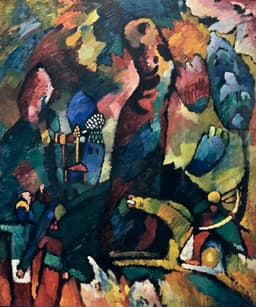
Wassily Kandinsky
@wassily-kandinsky
Wassily Kandinsky: Pioneer of Abstract Art
Wassily Kandinsky stands as one of the twentieth century's most revolutionary artists, fundamentally transforming how we understand visual expression. Born in Moscow in 1866 and later based in France, Kandinsky dedicated his life to exploring the spiritual potential of pure abstraction, creating a visual language that transcended representation and spoke directly to the soul.
Initially drawn to law and economics, Kandinsky abandoned these pursuits after witnessing an exhibition of Impressionist paintings. This pivotal moment ignited a passion for art that would reshape modernism itself. He became a leading figure in German Expressionism and later the Bauhaus movement, where his theoretical writings proved as influential as his paintings. His 1911 treatise "Concerning the Spiritual in Art" revolutionized artistic philosophy by proposing that colors and shapes possess intrinsic emotional and spiritual properties independent of objects they represent.
Kandinsky's artistic evolution moved progressively from representational landscapes toward complete abstraction. His compositions feature dynamic combinations of geometric forms, vibrant colors, and lyrical lines that evoke music and emotion. Notable works like "Composition VIII" and "Several Circles" exemplify his belief that art could achieve universal meaning through pure form and color relationships. He famously compared his artistic process to musical composition, describing himself as a painter-composer orchestrating visual symphonies.
His contributions extended beyond canvas through his crucial role at the Bauhaus school, where he taught and developed influential color theory and design principles still studied today. Even after fleeing Nazi Germany, Kandinsky continued innovating until his death in 1944. His legacy profoundly influenced Abstract Expressionism, Minimalism, and contemporary art. Today, Kandinsky remains celebrated as the visionary who liberated art from representation, proving that abstraction could achieve profound emotional and spiritual depth.